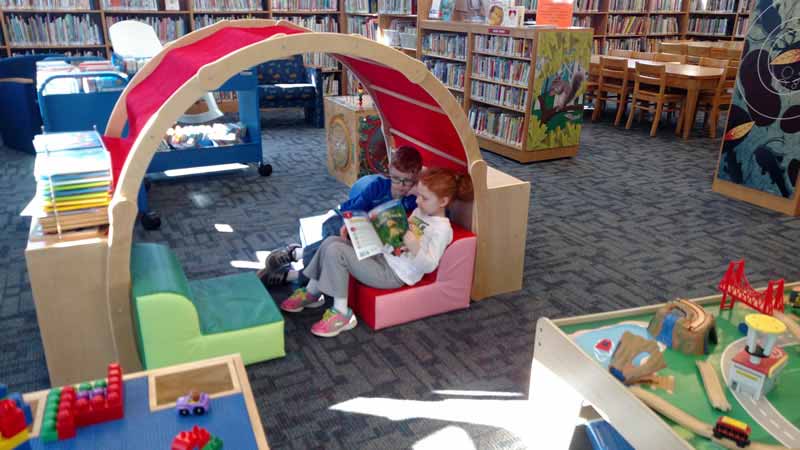
Aakanksha Rai, who is studying in four classes, always goes to Birat Community Library near her home after a school holiday. Fifteen students like Pukar, Vaishnavi, Naima, Tanchona, Sosin and Nitesh, who are studying in other schools of Biratnagar-4, also visit the library daily.
The library, which opened three months ago with a target of technical students, reads children's books and even performs extra activities weekly.
At the library, they have also learned the basics of children's book reading, handicraft, talent showcasing, painting, proclamation, garbage management. Every Friday they make small dishes, fruits, and vegetables out of paper waste, and stick the white paper on a block made of paper cloth. New children and middle-class students of Ward Network take part in the holidays and participate in the drawing competition with the students of the library.
The library rules the book for students to read half an hour daily. "We do extra work to develop reading skills and library habits," says librarian Daya Rai. She says that her daughter, Mithum, who teaches a class, comes to the library every day because she is able to read the children's books properly.
For some parents, the importance of the library is still not realized. Some parents say 'let's just go and visit the library!' For such parents, the libraries that are open in the neighborhood. This is not to blame for current education. Because in some private schools, only students from the lower middle class will get access to the library.
Successful practice in developed countries has shown that if children are allowed to read books at an appropriate age level after the letters and volumes are reached, then reading habit is awakened in them. Understanding that educated children and educated young people are needed to build a civilized society and bring the country to the pinnacle of prosperity, developed countries have emphasized publishing age-based books.
Books published in the UK and the United States targeting children under the age of two. This should be done so that educated parents can read to their children. In Australia, the 'Small Library' is housed in a small house-like structure. In such a rotating library, people keep books they have already read.
To us, parents are deprived of children at home and teachers do not understand the importance of children's books in school. While parents and teachers are unaware of the wide-ranging benefits of reading additional books, children's books available in the market have not been able to find a proper reader.
The last time parents spend most of their time on social media after having easy access to information technology, it has a negative impact on children. Such parents have provided smartphones and tabs to seduce their young children.
The use of such materials by the children of governing families is to avoid books and magazines again. Studies have shown that the habits of using these tools can have a negative impact on children's personality as well as their health.
Even children who are accustomed to doing these things do not have enough time to do their homework. These reasons are losing the appetite for reading in children nowadays.
Studies show that most of those who have recently had the opportunity to read additional books in school life complete their university education.
If parents and teachers at home are facilitated to provide children's books at an appropriate age level for the technical level, then we also have an environment for children and young people to read additional books. Children and young people being educated in this way mean the preparation of skilled manpower to build a civilized society.
(The author of this article is Madhu Rai and published on Kantipur Daily)


